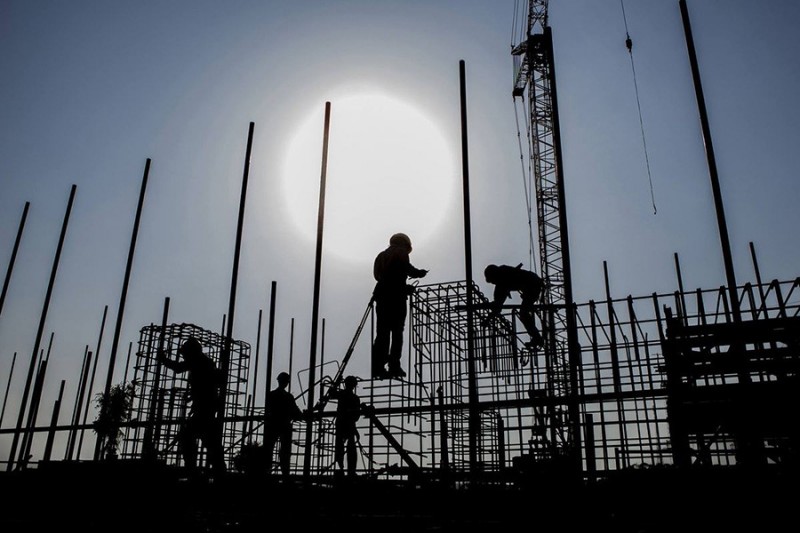
MASTER Builders Association Malaysia (MBAM) has called for government’s intervention on the issue of rising steel prices, which result in higher building material costs.
Local steel bar manufacturers have recently voiced out that they have no control over the rising steel prices, as it is subject to global supply and demand dynamics.
Commenting on the matter, MBAM president Tan Sri Sufri Mhd Zin said it is best that government authorities such as the Ministry of International Trade and Industry and Malaysian Competition Commission investigate and comment on the issue of rising steel prices.
“We want stable prices for steel as there are no price fluctuation clauses in private contracts.
“However, there are no further deliberations on this issue planned at the moment,” he told The Malaysian Reserve.
According to the Malaysian Iron and Steel Industry Federation (MISIF) and the Malaysia Steel Association (MSA), steel bar prices rose in the first half of 2021 (1H21), owing primarily to strong demand resulting from global economic recovery and hike in raw material prices, particularly scrap, iron ore and coking coal, due to supply tightness and global supply chain disruption.
The two trade bodies noted that coupled with the Chinese government’s tight control over steel production and the removal of export rebates, the increasing raw material costs are reflected in rising steel prices.
They also added that rising energy prices, such as a 64% increase in natural gas tariff in 2021 in Malaysia, as well as a surge in international freight costs also contributed to the increase in imported material costs and steel prices.
Notably, they said domestic steel bar prices have been consistently below China prices.
“We wish to reiterate that the trajectory of domestic steel prices tracks the international price trend, particularly China steel prices, as China accounts for more than half of global crude steel production.
“Hence, domestic steel bar manufacturers have no control over steel prices, given that the domestic steel prices are subject to the global supply and demand dynamics,” MISIF and MSA said in a joint statement recently.
Both associations also highlighted that steel bar users, such as contractors and housing developers, have been able to import steel bars at zero import duty without the need for an approved permit since 2008.
Additionally, MISIF and MSA stated that steel products account for approximately 3% only of the total housing project cost.
They added that both associations are not aware of any cartel dominance in the iron and steel industry.
“We welcome engagements with relevant ministries and associations for further deliberation,” they said.
Meanwhile, the Institute for Democracy and Economic Affairs (IDEAS) believes that the inflationary pressures and price hikes that Malaysia is currently facing are temporary and can be effectively controlled through proper monetary and fiscal policies.
In a recent statement, IDEAS said even though the inflationary trend is disconcerting, inflation can be controlled efficiently in the short to medium term through the timely deployment of monetary policies.
The think-tank noted that the US Federal Reserve has signalled that it will increase its Overnight Policy Rate (OPR) multiple times this year to tame the US’ own inflation.
“Malaysia will likely follow suit by increasing its OPR gradually in 2022 and 2023, whereby Bank Negara Malaysia is expected to increase the OPR by about 50 basis points in 2H22,” it said.
According to IDEAS director of economic and business unit and acting research director Dr Juita Mohamad, the current rise in inflation is a global issue, stemming from stronger demand and higher energy prices, after two years of battling the pandemic through the implementation of lockdowns.
“The pandemic and the lockdowns led to both demand and supply shocks at a global scale. As a small and open economy, Malaysia is not immune to the devastating aftermath posed by the pandemic.
“Inflationary pressure is further compounded by the recent flooding in the country, which has put a strain on the supply of selected essential goods produced locally,” she said.
Juita added that to minimise the negative effects of the price hikes on consumers in the short term, fiscal policies including fuel and electricity consumption subsidies and price ceiling of essential goods have been deployed by the government in the past.
However, she noted that in the long term, these instruments and interventions need to be rationalised in order to avoid sustained dependence on subsidies and price ceilings, which would not be economically viable over the long term.
“In our view, a formalised social safety net programme needs to be developed to ensure financial assistance and aid can be targeted and funnelled to the vulnerable households and groups effectively and transparently,” she said.
Source: https://themalaysianreserve.com/2022/02/21/govt-urged-to-intervene-on-steel-price-hike/

